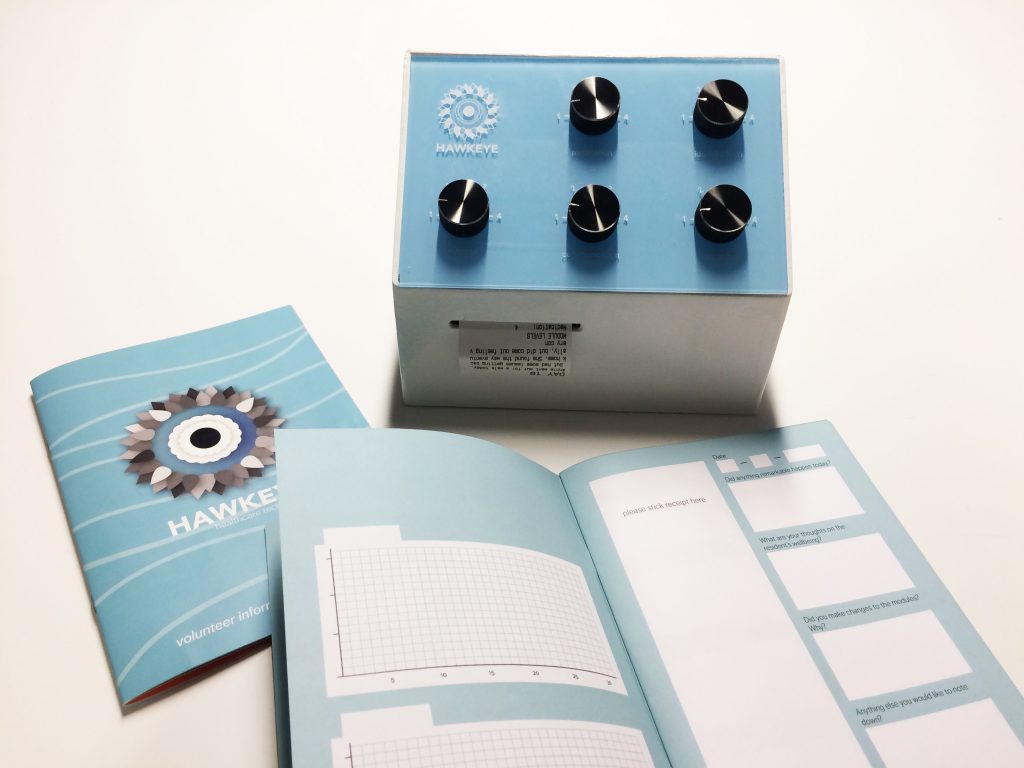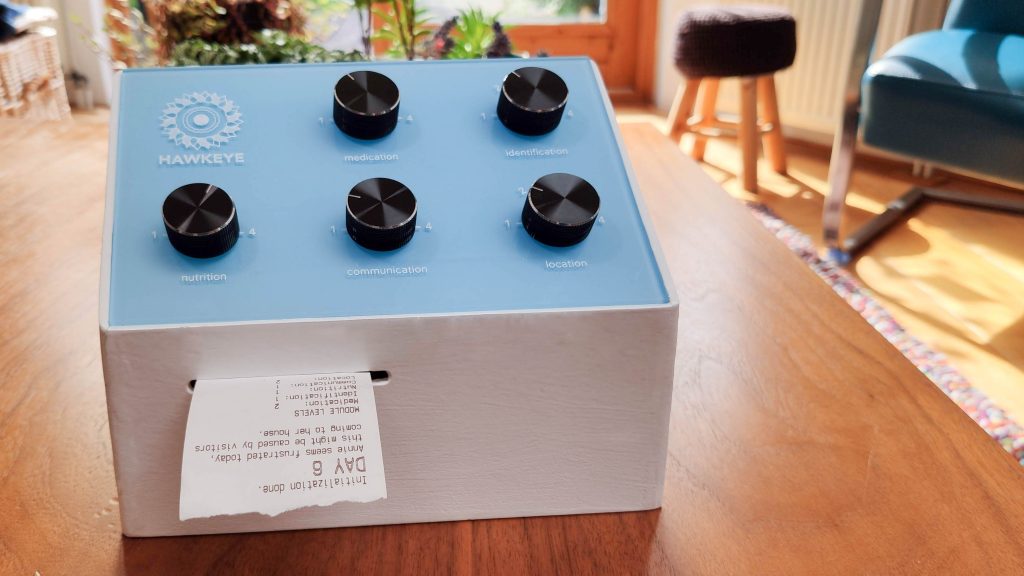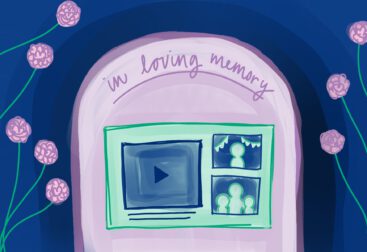with Britta Schulte
The worldwide population is ageing rapidly. This means that conditions related to old age, such as dementia, are becoming more common. 47 million people were living with dementia worldwide in 2016. This number is expected to increase to 131 million people by 2050.
Recent research into dementia and dementia care has focussed on an increased rate of personalisation and on enabling people with dementia to live at home for a longer period of their life.
HawkEye is a design fiction project that describes a possible future of dementia care through a prototype, the HawkEye control panel. This panel puts the user in the shoes of an informal carer, caring for someone with dementia living in a smart home. Each day, the prototype prompts the user with a data report about a fictional person living with dementia. Based on this information and the information brochure that comes with the control panel, they can decide to turn on different modules in the house that support the resident of the house in their daily tasks.
The project asks questions about the ethical boundaries of technology in the life of someone with dementia. It also addresses discussions regarding the decision making process in healthcare in a data-driven world where machines can replace humans. What should be our role in making these decisions and how does that apply when we are dealing with decisional incapacity?
This project was part of my MSc education at the Department of Industrial Design, Eindhoven University of Technology. I was supervised by Saskia Bakker (TU/e) and Britta Schulte and Paul Marshall (UCLIC).
Additional reading
HawkEye was presented at the Dutch Design Week 2018 in the Mind the Step exhibition, where it was awarded the Social Design Talent Award in 2018. It was also featured in ACM Interaction’s Demo Hour.
Publications:





